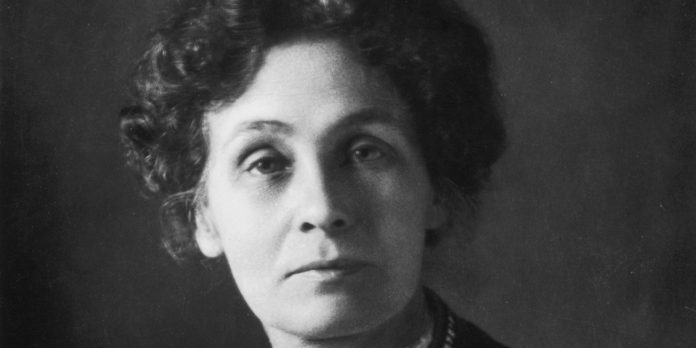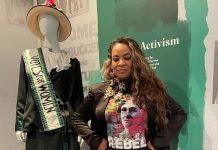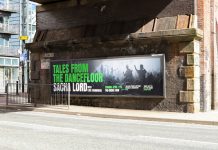
One hundred years ago today, the first women were given the right to vote in Parliament.
On the 6th February 1918 the Representation of the People Act 1918 gave women over the age of 30 the vote and extended voting rights to all men over the age of 21.
Manchester had played a huge part in the battle for female representation, no more so than that of the Pankhurst’s and 62 Nelson Street, the birthplace of the Suffragette movement.
But on this day we choose to remember a story from twenty two years previously across the other side of the city when the fragile feminine wife of a respected Manchester barrister, Richard Pankhurst first took to the stage at Boggart Clough.
In 1895, the town council had taken over the running of the Clough and the ramifications of that decision would launch the political career of Emily Pankhurst.
The park had been used on Sunday’s as a meeting place for the Manchester branch of the Independent Labour Party and decided to ban political meetings in the park. The decision was a unilateral one from Councillor George Needham, whose other roles included being President of the Manchester and District Pork butchers association. He consulted no one and even though there was nothing in the bye laws decided to enact the ruling, denying any political motivations.
The meetings continued, nevertheless and resulted in two regular speakers, Fred Brocklehurst and Leonard Hall, being fined five pounds for causing an annoyance. They refused to pay and were sent to prison.
It would break the health of the former, but for the majority, they were simply socialist agitators who had been given their just desserts. Then the party hit on the idea of getting a woman speaker, the fragile feminine wife of a respected Manchester barrister, Richard Pankhurst.
It was announced that on Sunday 21st June 1896, Mrs Emmeline Pankhurst would address the meeting on the subject of the life of William Cobbett. The Independent Labour Party had thought out their strategy. The man prosecuting was the grandson of the early nineteenth century fighter for freedom of speech, still upheld in radical circles.
The meeting saw thousands turn up, instead of the usual hundreds and Mrs Pankhurst was duly summoned on the next day on the same charge. The magistrate adjourned the case for a week, hoping that the matter may fade away.
The next Sunday Mrs Pankhurst would chair the meeting, over twenty thousand turning up. Once again the following day saw Mrs Pankhurst and the main speaker Mrs Glasier in front of the magistrate who would hear evidence from the police of pick pocketing amongst the crowd and one park labourer being rudely shoved around.
However proceeding were halted when Mrs Glasier asked the police inspector whether he felt the prosecution could continue and was told that in his personal opinion, he felt that they should stop.
Once again the magistrate would adjourn the case, but the next few days would see people from all sides of the political spectrum, challenging why a lowly councillor should be able to prevent free speech in a Manchester park.
The battle continued with its founder Kier Hardy, suffering from a mauling at the last elections, speaking and Mrs Pankhurst again taking the chair. Fifty thousand would turn up and in court the next day, the rich scottish accent and old testament beard would dominate proceedings, reminding the bench that open air meeting were held on the Sabbath two thousand years ago in Palestine.
The case was again adjourned but by now the council were forced to back down and the prosecutions were quietly dropped. Mrs Pankhurst would go onto greater things. She would remember the location ten years later speaking in the hollow of the Clough in front of a ten thousand-strong crowd in a meeting organised by the Women’ suffrage and Political Union, opening the events with the socialist hymn, “England arise, the long long nights are over” listened to by Kier Hardie somewhere in the crowd.
The butcher George Needham, it is said, told a reporter that before his encounter with Mrs Pankhurst, he needed forty pigs a week to satisfy his sausage making needs, now only needed four.







It’s Boggart HOLE Clough.
Always has been and always will be.